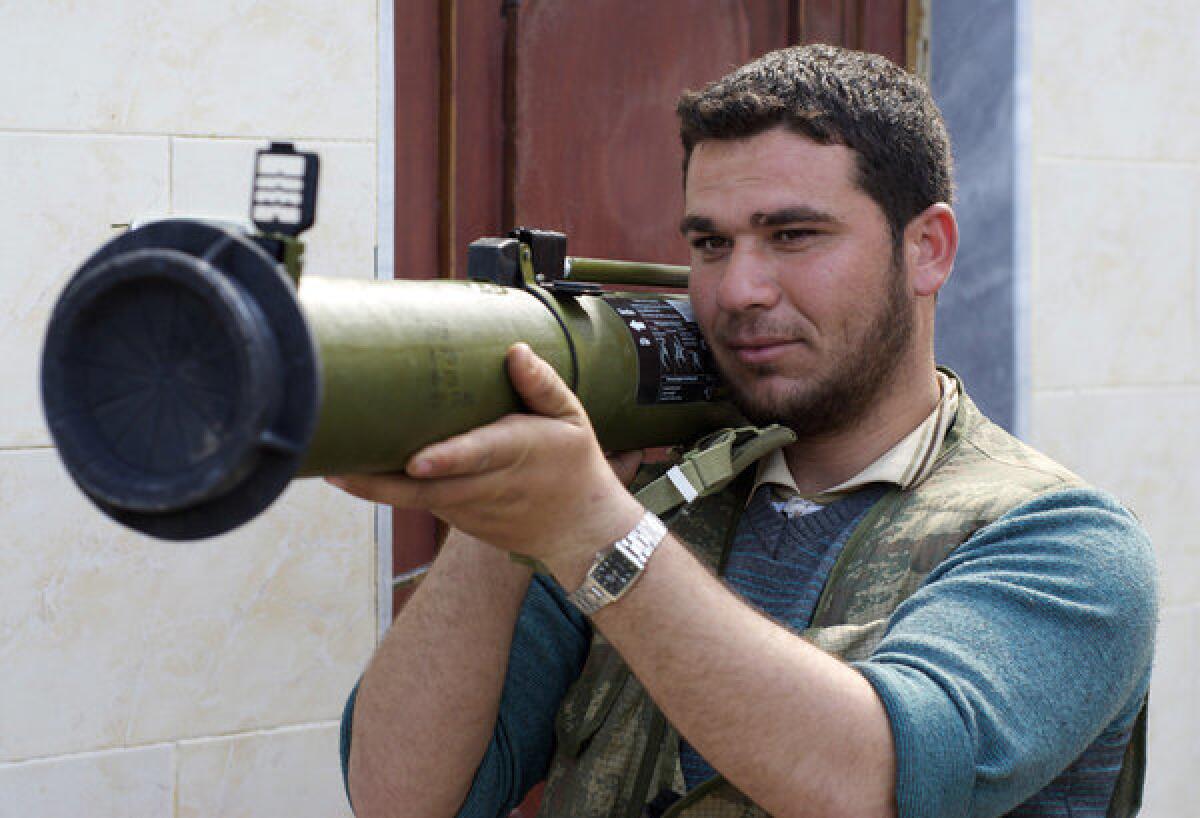Amnesty International urges caution in arming Syrian rebels

- Share via
BEIRUT -- Any government considering arming Syrian rebels should conduct a “rigorous human-rights risk assessment” before proceeding with weapons transfers, Amnesty International said Thursday. The group released a pair of studies detailing abuses by both sides in the Syrian conflict.
Amnesty’s caveat about arms transfers comes as at least two Western governments, Britain and France, are said to be contemplating providing weapons to rebels seeking to oust Syrian President Bashar Assad.
French President Francois Hollande on Thursday called for the lifting of a European embargo on shipping arms to Syria.
The Syrian opposition on Friday will mark the second anniversary of the uprising, which kicked off with anti-government protests in 2011.
Syrian rebels have long been seeking arms from the United States and its allies. The Obama administration has been hesitant to provide weaponry, however, fearing in part that the arms could fall into the hands of Al Qaeda-linked militants who are among the many Syrian rebel groups.
The flow of weapons to Syrian rebels has remained largely opaque and out of public view, though at least two nations, Saudi Arabia and Qatar, have reportedly been involved in arming opposition groups.
Amnesty said safeguards should be established to allow the cancellation of any arms deals if evidence suggests that the weapons will be used to commit “serious human rights abuses.”
The latest Amnesty report says the Syrian government has “indiscriminately” bombed civilian neighborhoods, sometimes employing ballistic missiles and cluster bombs, which eject explosive projectiles over a broad area, posing a threat to civilians. Prisoners detained by the government are “routinely subjected to torture, enforced disappearances or extra-judicial executions,” the report says.
Opposition fighters, meanwhile, “are increasingly resorting to hostage-taking and to the torture and summary killing of soldiers, pro-government militias and civilians they’ve captured or abducted,” Amnesty said. Amnesty cited an “execution video” in which a boy aged 12-14, encouraged by cheering Syrian rebels, brings a machete down on the neck of a captive colonel who lies on the ground with his hands behind his back.
“While the vast majority of war crimes and other gross violations continue to be committed by government forces, our research also points to an escalation in abuses by armed opposition groups,” said Ann Harrison, Amnesty’s deputy director for the Middle East and North Africa, who called on the U.N. Security Council to consider authorizing war crimes prosecutions. “If left unaddressed, such practices risk becoming more and more entrenched.”
All diplomatic efforts to halt the violence in Syria have failed. As many as 70,000 people have died in the Syrian conflict, the United Nations says.
ALSO:
The men who will not be pope (this time)
Pope Francis, soccer fan, scores with Argentina media
Vatican insiders didn’t predict Bergoglio, but who did?
More to Read
Sign up for Essential California
The most important California stories and recommendations in your inbox every morning.
You may occasionally receive promotional content from the Los Angeles Times.










